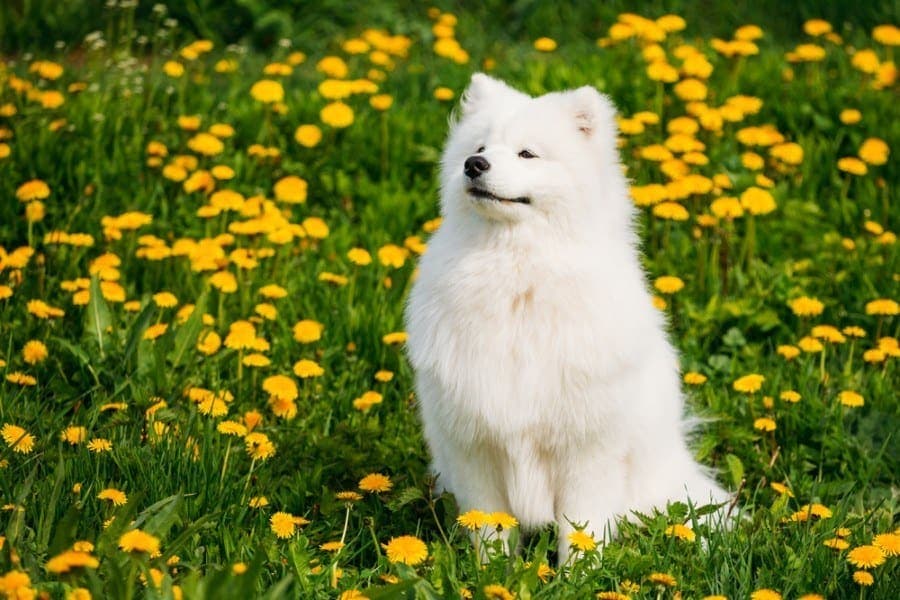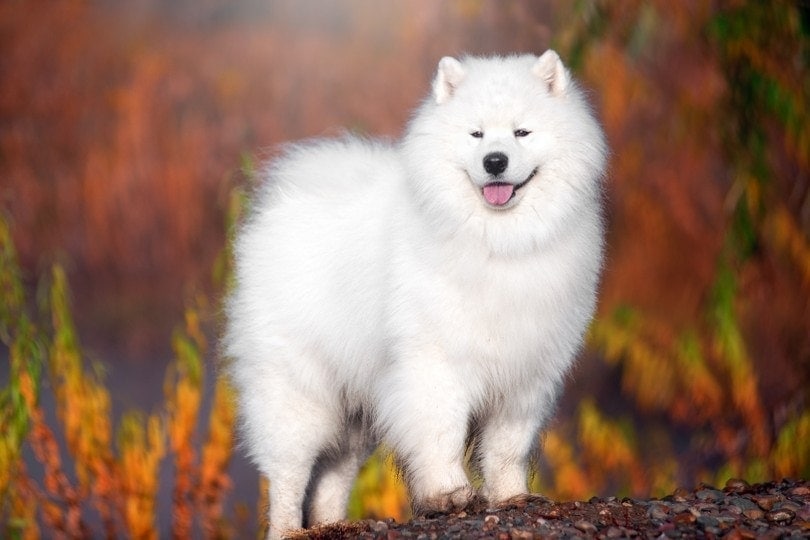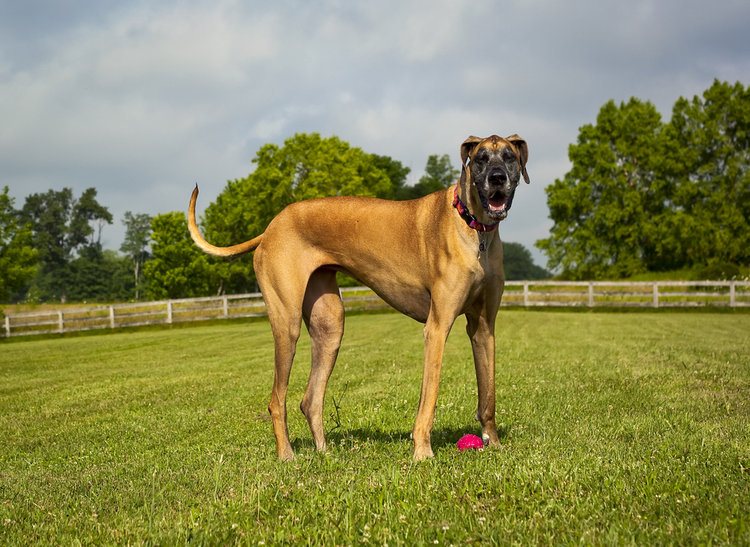How Much Do Samoyeds Shed? Important Care Facts
By Kit Copson
Updated on

Samoyeds—affectionately known as “Sammys” are pretty much dog world royalty; they’re beautiful, graceful, powerful, and—in terms of coat care—somewhat high maintenance. Samoyeds shed continually throughout the year but come shedding season, this accelerates. Read on to find out more.
Do Samoyeds Shed a Lot?
Yes, Samoyeds are what you might call heavy shedders because they shed year-round. What’s more, when shedding seasons roll around (spring and fall), Samoyeds blow their coats. This means they shed pretty heavily at these times to prepare for summer and winter, and the result is often a mass of cottony furballs that can end up floating around your home if you don’t take charge of the situation!
Novice Samoyed parents may be alarmed at the amount of hair that is shed during these times, but don’t worry—as long as your Samoyed is otherwise healthy, it’s normal.
Keep an eye out for changes in your dog’s skin and coat condition to ensure they’re not suffering from excessive/abnormal shedding or a skin condition. Signs to look out for include a dry, brittle coat, bald patches, pain when certain areas are touched, and redness, dryness, or irritation of the skin.
It’s important to brush your Samoyed’s coat daily throughout the year to keep it free of mats and tangles. During shedding seasons, you’ll want to crack out a good deshedding tool to prevent the undercoat from building up in the coat and give your Sammy’s natural shedding process a helping hand. This also helps keep your home clean.

Are Samoyeds Hypoallergenic?
The question of whether or not a dog is hypoallergenic is more complicated than a simple “yes” or “no” answer. It may surprise you to learn that Samoyeds are generally considered to be hypoallergenic because, though they shed a lot of hair, they don’t shed much dander. Dander (dead skin flakes) is the allergen that triggers a reaction in allergy sufferers.
Furthermore, people with allergies can also be affected by proteins in dog saliva. Samoyeds aren’t big droolers, and there’s a good reason for that. You may have noticed that Samoyeds have a permanent “smile” on their faces—this trait was actually developed to stop them from drooling.
When working as sled dogs in frigid temperatures, it was important that Samoyeds didn’t drool because that drool would freeze up on their faces. This explains why the Samoyed has upturned lips.
All that said, every dog sheds somewhat—including Samoyeds and other breeds that don’t shed much dander or are labeled “hypoallergenic”. There is still a risk of an allergic reaction even around low-shedding dogs, so it’s important to factor that in if you’re thinking of beginning a Samoyed home.
The good news is that many people with allergies can manage them around dogs. Proper cleaning routines, handwashing, and installing HEPA air filters are some of the most common management techniques.

Can I Shave my Samoyed?
No, you should never shave your Samoyed. Their double coats are important for thermal (heat) regulation and shaving them can seriously damage this natural system and leave the dog unprotected from the elements and weather. Moreover, the coat might not grow back to look the same as it did before.
Conclusion
There’s no denying that Samoyeds shed a lot, especially when shedding seasons hit. If you bring a Samoyed home, we recommend arming yourself with a good deshedding tool and brush to tackle those huge cottony tufts!
On the other hand, these dogs shed minimal dander (allergen), don’t drool, and don’t tend to get smelly, which reduces the risk of reactions for allergy sufferers, but doesn’t entirely eliminate it.
- Related Read: Samoyed Grooming: 9 Expert Tips & Tricks
Featured Image Credit: Grisha Bruev, Shutterstock










